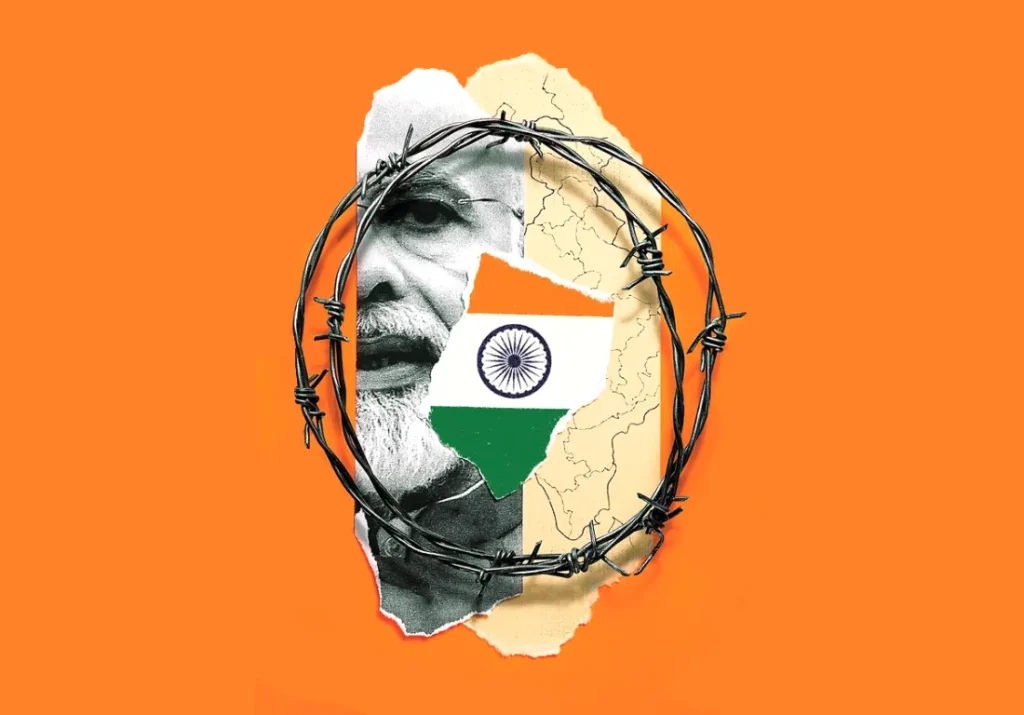Which Statement Best Characterizes a Dictatorship
The allure of a strong, centralized leader is undeniable. In times of crisis or rapid change, the promise of decisive action and unwavering focus can be intoxicating. However, history offers a stark warning: dictatorship, in its various forms, casts a long shadow, impacting not just the political landscape, but the very fabric of a nation’s economy and the well-being of its people. Let’s take a closer look at this complex issue through the lens of India and Russia, two nations with vastly different experiences with authoritarian rule.
India: A Democracy Forged in the Fires of Struggle
India’s path to democracy was arduous. Centuries of colonial rule were followed by a violent partition, leaving the fledgling nation deeply scarred. Yet, India chose a different path. It embraced a democratic framework, messy as it may be, with its checks and balances, noisy debates, and the messy beauty of a people actively shaping their destiny.
This democratic foundation fostered a vibrant political scene. While corruption and inefficiency remain challenges, India boasts a multi-party system, a free press, and a relatively independent judiciary. On the economic front, India’s liberalization policies, initiated in the 1990s, unlocked its potential. The rise of a strong middle class and a flourishing tech industry are testaments to the power of a system that empowers individuals and fosters innovation.
Russia: The Long Shadow of the Tsars and the Iron Fist of the Soviets
Russia’s story stands in stark contrast. Centuries of Tsarist autocracy gave way to the iron fist of the Soviet Union, a totalitarian regime that stifled dissent and controlled every facet of life. While the USSR achieved rapid industrialization, it came at a tremendous cost: the suppression of human rights, brutal purges, and a stagnant economy choked by central planning.
The collapse of the Soviet Union in 1991 ushered in a period of hope for democracy. However, the transition proved far more challenging than anticipated. Oligarchs rose to power, amassing vast fortunes while ordinary citizens struggled. Political freedoms were eroded, with President Putin consolidating power and cracking down on dissent.
The Economic Cost of Dictatorship
Dictatorships often prioritize short-term gains over long-term sustainability. Resource allocation becomes a tool for political control, stifling innovation and entrepreneurial spirit. Cronyism and corruption flourish in the absence of transparency and accountability. Both India and Russia provide stark examples.
While India’s economic liberalization has yielded impressive results, corruption remains a persistent problem. Russia, on the other hand, is heavily reliant on resource extraction, leaving its economy vulnerable to price fluctuations. The sanctions imposed in response to the Ukraine war further expose the weaknesses of a system that fails to diversify and foster innovation.
The Well-being of People: A Dictator’s Bargain
Dictators often promise stability and order. However, this “stability” frequently comes at the expense of individual freedoms and the right to dissent. People’s lives are dictated by the whims of the regime, leaving them feeling powerless and voiceless.
India’s democratic system, though imperfect, allows for a degree of self-determination. While economic inequalities exist, the freedom of expression facilitates dissent and social movements that push for change. Russia, under Putin, presents a different picture. The crackdown on independent media and the silencing of opposition have created a climate of fear and apathy.
The Impact of Dictatorship Rule
Dictatorship rule, characterized by authoritarian control over a nation, has profound implications on every aspect of society, including the economy, politics, and the wellbeing of its people. Particularly, we’ll examine the current political instability in India, under Prime Minister Narendra Modi’s governance, and its implications for the upcoming election
- Political Ramifications:
Dictatorship rule often suppresses political dissent and undermines democratic institutions, leading to a concentration of power in the hands of a few. In India, the Modi government’s crackdown on dissenting voices, including journalists, activists, and political opponents, has raised concerns about the erosion of democratic values and freedoms. The recent farmers’ protests and the controversial Citizenship Amendment Act (CAA) have further polarized the nation, exacerbating tensions along religious and ethnic lines.
Supporters of an anti-corruption crusader and one of India’s most consequential politicians of the past decade held protests Friday against his arrest, which opposition parties say is part of a crackdown by Prime Minister Narendra Modi’s government before national elections.
Arvind Kejriwal, who is New Delhi’s top elected official, was arrested Thursday night by the federal Enforcement Directorate, which is controlled by Modi’s government. The agency accused his party and ministers of accepting 1 billion rupees ($12 million) in bribes from liquor contractors nearly two years ago. Source: PBS
- Impact on Wellbeing:
The impact of dictatorship rule on the wellbeing of the populace cannot be overstated. In India, despite economic growth and development, millions of people still live in poverty, lacking access to basic necessities such as healthcare, education, and sanitation. The Modi government’s emphasis on Hindu nationalism has also marginalized religious minorities, exacerbating social tensions and undermining social cohesion.
“A scared dictator wants to create a dead democracy,” Congress leader Rahul Gandhi said about the arrest in a post on X, formerly Twitter.
- Economic Implications:
Under dictatorship rule, economic policies often prioritize the consolidation of power rather than the welfare of the populace. In India, the Modi administration’s economic agenda has been marked by ambitious initiatives such as “Make in India” and “Digital India,” aimed at fostering economic growth and development. However, critics argue that these policies have disproportionately favored large corporations while neglecting the needs of small-scale industries and the rural population.
“India is under an undeclared Emergency. Our democracy stands critically endangered today,” said Raghav Chadha, a lawmaker from the AAP.
Modi’s Leadership: Is India Under a Dictatorship?
The leadership style of Prime Minister Narendra Modi has sparked intense debate, with critics often accusing him of exhibiting authoritarian tendencies. As India, the world’s largest democracy, navigates through complex socio-political challenges, understanding the nuances of Modi’s rule is crucial.
- Centralization of Power:
One of the key criticisms leveled against Modi’s government is its tendency to centralize power, undermining the federal structure enshrined in India’s Constitution. The BJP’s dominance at the national level, coupled with its control over several state governments, has led to concerns about the concentration of authority in the hands of the ruling party. Critics argue that this centralization diminishes the role of regional parties and weakens the checks and balances essential for a healthy democracy.
- Suppression of Dissent:
Freedom of expression and dissent are fundamental pillars of democracy, yet under Modi’s leadership, there have been numerous instances of crackdowns on dissenting voices. Journalists, activists, and intellectuals critical of the government have faced harassment, intimidation, and even imprisonment, creating a climate of fear and self-censorship. The use of sedition laws and the Unlawful Activities Prevention Act (UAPA) to target dissenters has raised concerns about the shrinking space for free speech and political dissent in India.
- Erosion of Democratic Norms:
Perhaps the most significant concern surrounding Modi’s leadership is the erosion of democratic norms and institutions. The undermining of independent institutions such as the judiciary, election commission, and central investigative agencies has raised questions about the government’s commitment to upholding the rule of law and separation of powers. The recent controversial appointments to key positions, including the Chief Justice of India and the Central Vigilance Commissioner, have further fueled allegations of political interference and erosion of institutional integrity.
The Future: Democracy’s Imperfections vs. The Dictator’s Mirage
In 2014, Dr. Prabhakar recalled, Narendra Modi and the BJP had asked for votes after promising good governance, a clean and corruption-free government and ‘development’. The nation was not taken into confidence about their real intention to usher in a Hindu rashtra (Hindu nation) and unleash the forces of Hindutva, he said. Development thus was used like a Trojan horse to let Hindutva loose on an unsuspecting nation—and if this is what BJP and Modi stand for, they need to be resisted, he added. Source: Deccan Herald
Democracy is not a perfect system. It is slow, messy, and often frustrating. However, it empowers people to hold their leaders accountable and shape their own futures. The alternative, as India and Russia’s histories demonstrate, is a system that breeds fear, stagnation, and ultimately, a stifled nation.
Insider Tip: Want to hear all the latest political upheaval that has been happening in India? Hear this daring Youtuber Dhruv Rathee
The Uncomfortable Truth: Are Dictators All Bad? (Prepare to Be Triggered)
Dictators. We’re conditioned to recoil at the word, conjuring images of goose-stepping armies and hollow-eyed citizens. But is the narrative that simple? Here’s the truth bomb: Dictatorships can deliver stability and rapid progress, especially in chaotic situations.
Think Singapore. Lee Kuan Yew, often labeled a dictator, transformed a resource-poor island into a global powerhouse. China’s economic boom also happened under a one-party system. Now, before you grab your pitchforks, hear me out.
The problem isn’t dictatorship itself, it’s the lack of checks and balances. An unchecked dictator, drunk on power, easily becomes a tyrant. Look at North Korea, a cautionary tale of human rights abuses and economic stagnation.
So, how do we avoid the pitfalls?
- Term Limits: Force a power shuffle. A dictator clinging to power for decades breeds corruption and stagnation.
- Independent Institutions: A free press and judiciary hold power accountable, preventing the descent into tyranny.
- Focus on Meritocracy: Dictatorships often favor cronies, stifling innovation.
Dictatorship isn’t inherently evil. It’s a tool. A hammer can build a house or smash a skull. The key is wielding it responsibly.
This is where it gets controversial: Should the West impose democracy on nations with different cultural values? Democratization can be messy, even disastrous. Perhaps supporting strong institutions within dictatorships is a more pragmatic approach.
This isn’t a defense of dictators, but a call for nuance. The world is complex, and black-and-white solutions rarely work. Let’s have an honest conversation, not a comfortable one.
Sound off in the comments! Do dictatorships have a place in the modern world? Is “one size fits all” democracy a recipe for disaster? Let the debate begin!



